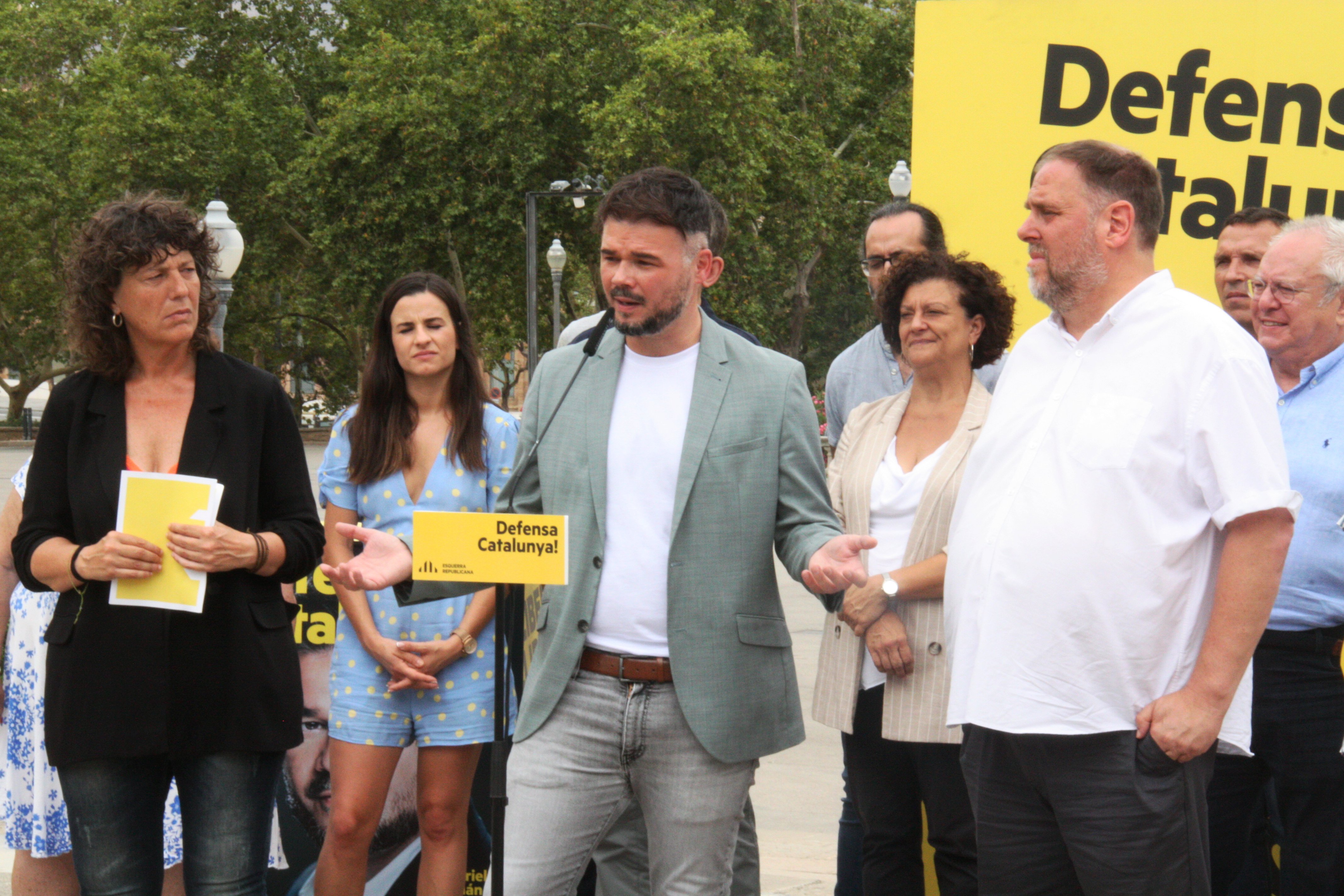The three conditions which Esquerra Republicana de Catalunya (ERC) set for voting for Pedro Sánchez as prime minister should the circumstances be right after the general elections of July 23rd, have shaken the pro-independence movement in this final stretch of the campaign. After a few weeks in which reproaches were moderated, the fact that ERC set as an asking price the transfer of Rodalies —the main commuter and regional rail system in Catalonia—, ending fiscal deficit, and not abandoning the dialogue table, has caused reproaches by the CUP and Junts per Catalunya, who demand, in different ways, a referendum on self-determination. And on the last day of the electoral campaign, which ERC begun with a press conference at the foot of Montjuïc, both Gabriel Rufián and Oriol Junqueras defended their strategy in the face of criticism.
The head of list in these elections reproached Míriam Nogueras of Junts that during the campaign she has presented data on Rodalies' failures, but has not proposed anything to find a solution. “What use would it be for me to say now that Rodalies does not work, turn around and leave?”, asked Rufián, assuring that what his party does is talk about people's daily life: “Being useful does not make us less pro-independence, dealing with reality does not make us less pro-independence”, summed up the Santa Coloma de Gramenet councillor.
A vision which ERC's president, Oriol Junqueras, supported. “If we want to be a state, we must try to be as much of a nation as possible, but also as much of an economy, as much of a society, as much of a community life. And to achieve this it is clear that we must work to make trains run as well as possible, while working towards a referendum,” he declared. Accompanied by a good part of ERC's candidacy to the Spanish Congress and Senate, he insisted on the fact that “working for better infrastructures and better financing does not distance us from the governorship, it brings us closer to it, since in this way it will be possible to build larger, more solid and conscious majorities”.
ERC plays down Sánchez's 'no' to the referendum
For his part, Pedro Sánchez ended his electoral campaign for the general elections that he himself advanced, after the failure of the municipal and autonomic elections, by slamming the door on a referendum, as Yolanda Díaz did. Faced with this refusal in an interview on RTVE, Spain's largest state-owned media corporation, in which Sánchez also branded the pro-independence movement as an “outdated ideology”, Rufián wanted to take credibility away from these words, via his usual irony. “If he had enough support, Sánchez would say that it is now nighttime,” he joked, since the event was held at noon. ERC's candidate insisted on the need to support his party, to force —together with EH Bildu— the PSOE to negotiate measures it has opposed in the past, such as pardons.

